Reporter: Resolution No. 66-NQ/TW of the Politburo on innovation in law-making and enforcement to meet the requirements of national development in the new era, requires a shift from "management" thinking to "development creation" thinking. Could you tell us what important changes in legislative thinking are in the draft Law on Bidding (amended) this time in the spirit of Resolution 66?
Ms. Vu Quynh Le: This draft Law on Bidding (amended) marks an important shift in legislative thinking, when it grants greater autonomy to enterprises, especially state-owned enterprises and public service units. Accordingly, enterprises have the right to decide for themselves on the selection of contractors according to the principles of publicity, transparency, efficiency and accountability.
This draft is not simply a technical amendment but a major adjustment in the thinking of public administration and management - shifting from pre-control to post-control, from detailed management to principle-based management. This is a condition for enterprises to be given more power, while also having to increase their responsibility accordingly.
Some new contents include: allowing scientific tasks to be implemented with contract expenditure; purchasing from households and individuals; purchasing without using the state budget; special incentives for innovative enterprises; and using technical scoring methods in evaluating bidding documents - instead of just taking the lowest price as the criterion.
In particular, in international and domestic bidding, the law encourages joint ventures to promote technology transfer and access to advanced technology. This mechanism is expected to motivate domestic enterprises to improve their qualifications and increase their competitiveness in the global value chain.
In addition, the draft Law amending 7 laws of the financial sector has also proposed solutions to improve the effectiveness of bidding work by focusing on cutting down, simplifying procedures, and shortening bidding time, including solutions such as abolishing the procedure for evaluating contractor selection results; eliminating some procedures, online bidding operations and some bid evaluation criteria to shorten time and reduce bidding procedures; abolishing the role of the bidding party and transferring some tasks of the bidding party to expert groups and investors to streamline and eliminate intermediary levels in the contractor selection process; adding regulations on "floor prices" in construction bidding to limit the situation of contractors offering prices that are too low, affecting the quality of the project.
 |
| Ms. Vu Quynh Le, Deputy Director of the Bidding Management Department ( Ministry of Finance ). |
Reporter: Currently, the situation of dumping in bidding is increasingly fierce. In the context that Vietnam is aiming to develop science and technology as a foundation for breakthrough growth, will the current bidding regulations - which prioritize low prices - lead to the risk of turning Vietnam into a technology dumping ground, becoming a place to receive the world's outdated technologies?
Ms. Vu Quynh Le: The 2023 Law on Bidding stipulates three methods for evaluating bids: lowest price, evaluated price (including life cycle costs), and a combination of technical and price.
However, in practice, the lowest price method is still widely applied due to its ease of implementation, while the evaluation price method requires full data on operating costs, maintenance, energy consumption, etc. throughout the project life cycle. The combined technical and price method is only limited to bidding packages with high technical requirements.
To overcome this, in this law amendment, we have proposed applying a method of evaluating bidding documents combining technical and price for bidding packages in the fields of science, technology, and innovation, along with many other innovations such as: allowing autonomy and self-determination in selecting contractors for organizations and individuals in charge of performing scientific and technological tasks; giving incentives to innovative enterprises and scientific and technological organizations in the direction of prioritizing the assessment of capacity and experience; promoting public procurement of research results.
These adjustments are expected to transform the contractor selection method from “choose the cheapest” to “choose the most suitable and effective”.
Reporter: Please go into some technical issues that in reality affect the winning bid, and may "slip through" low-quality bidders. That is, from January 1, 2024, the amended Bidding Law requires many bid packages to apply the 1-stage, 1-envelope format - that is, opening the technical part and the price part simultaneously - instead of evaluating the technical part first as before. So does this format lead to the risk of selecting a low-priced bidder but the technical part is not guaranteed, and in case the bidder does not submit enough supporting documents from the beginning but adds them after the bid closing, does the investor have the right to disqualify them? Does the Bidding Law clearly stipulate this?
Ms. Vu Quynh Le: During the implementation of the 2013 Bidding Law, the one-stage, two-envelope method was abused in some places and at some times: investors eliminated contractors right from the technical evaluation step, and at the financial step, there was only one contractor left, reducing competition and transparency. That is why the 2023 Bidding Law basically switched to the one-stage, one-envelope method for normal goods and construction procurement packages.
Although both technical and financial proposals are opened at the same time, the one-envelope method still ensures the principle of separate evaluation: only bidders who meet the technical requirements will be evaluated financially. However, the price factor can affect the psychology of the expert team when evaluating the bidding documents, so this method is only suitable for regular bidding packages.
The 2023 Bidding Law still allows the application of two dossier envelopes for bidding packages with high technical requirements. However, in practice, this criterion is still unclear, causing confusion when determining. In some cases, due to progress pressure, the one-envelope procedure is still applied to bidding packages with specific technological requirements - potentially posing a risk of suboptimal selection.
To address this shortcoming, the Law on Bidding is being proposed to be amended in line with the Law on Science, Technology and Innovation (submitted at the same session of the National Assembly) to apply a one-stage, two-envelope method to bidding packages in the technology sector according to science law, bidding packages with technology in the List of high technologies prioritized for investment and development issued by the Prime Minister.
The Law on Bidding and its guiding documents have provided for clarification of bidding documents after the closing of bidding for many years. This is also a method in line with international practice. The clarification must ensure the principle of not changing the nature of the participating bidders, not changing the basic content of the submitted bidding documents, and not changing the bidding price.
We see that the bidding process is to select the most capable contractor and propose the best solution. The bidding process should not be turned into a process of eliminating potential contractors, and especially should not be ignored because of administrative errors.
There are cases of clarification to supplement information about the capacity that the contractor already has such as lack of certificates, degrees, certificates, etc. There are cases of clarification about the parameters of the offered goods. These are the contents that have been specifically regulated in Article 28 of Decree No. 24/2024/ND-CP.
Reporter: What plans does the Bidding Management Department have to monitor, evaluate and promptly handle violations to ensure transparency and efficiency in bidding activities?
Ms. Vu Quynh Le: To ensure transparency, competition and efficiency in bidding activities, it is necessary to strengthen and improve the effectiveness of supervision, inspection, evaluation and handling of violations. Through actual inspections, many shortcomings and errors have been discovered in the process of selecting contractors, such as planning for contractor selection, preparing bidding documents, evaluating bidding documents, etc. On that basis, the inspection teams recommended corrections, remedies and clearly defined responsibilities of relevant organizations and individuals for handling or recommended competent authorities to handle according to regulations.
In addition, the mechanism for monitoring bidding activities is increasingly being improved. The 2023 Law on Bidding and Decree No. 24/2024/ND-CP have added a regular monitoring mechanism for signs that do not ensure the requirements of competition, fairness, transparency and economic efficiency. These signs can be detected through the national bidding network or through recommendations and reflections from relevant parties, such as: investors do not respond to requests for clarification of documents, violate posting time, bidding documents show signs of competition restriction, etc.
As mentioned above, the content of inspection and supervision is continuing to be perfected in the draft Law amending a number of articles of 7 laws in the financial sector. The new perspective is to shift from "pre-inspection" to "post-inspection", ensuring both strict and transparent management and creating an open legal environment, suitable for development requirements and modern management practices.
Reporter : Thank you very much!
Source: https://nhandan.vn/du-thao-luat-dau-thau-sua-doi-danh-dau-buoc-chuyen-tu-tu-duy-quan-ly-sang-tu-duy-kien-tao-phat-trien-post882696.html






















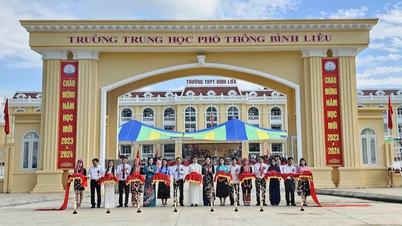




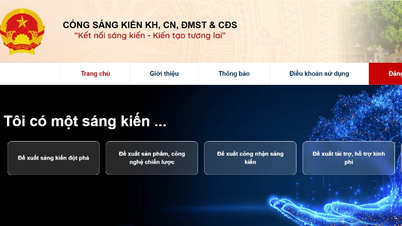


![[Photo] Opening of the 14th Conference of the 13th Party Central Committee](https://vphoto.vietnam.vn/thumb/1200x675/vietnam/resource/IMAGE/2025/11/05/1762310995216_a5-bnd-5742-5255-jpg.webp)


















































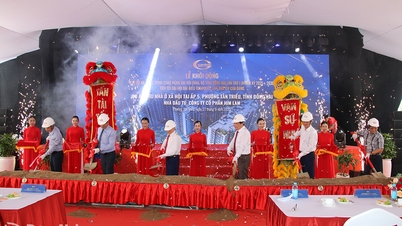

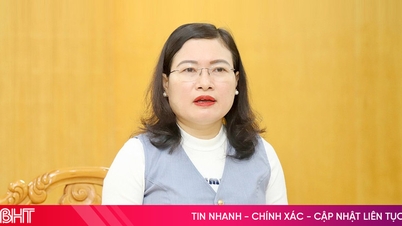

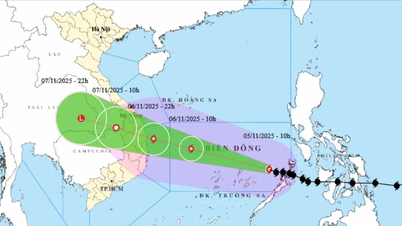


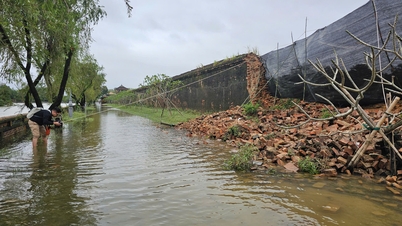















Comment (0)